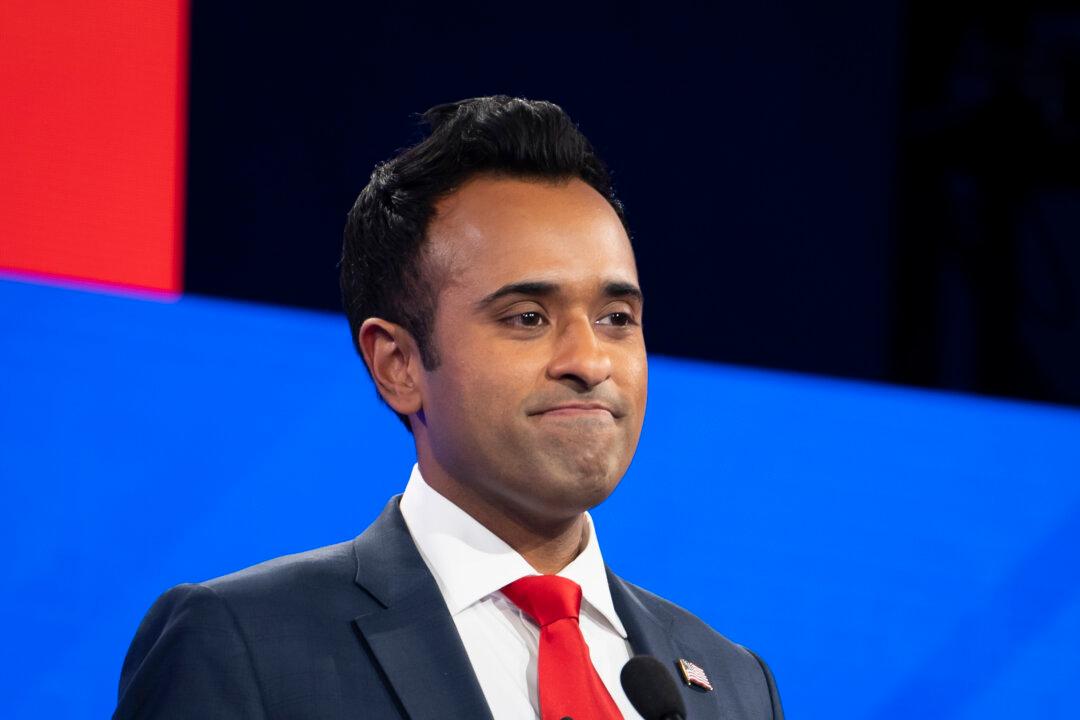Republican presidential candidate Vivek Ramaswamy has stepped in to support former President Donald Trump’s efforts to remain on presidential primary ballots in Colorado and Maine.
In an amicus brief filed with the U.S. Supreme Court on Jan. 11, attorneys for Mr. Ramaswamy argue that attempts to bar President Trump from the ballot are merely a politically motivated attack orchestrated by Democrats who doubt they can beat him in a fair election.





